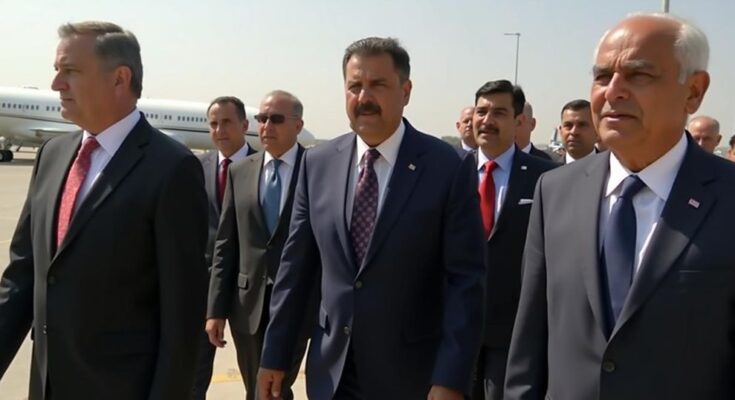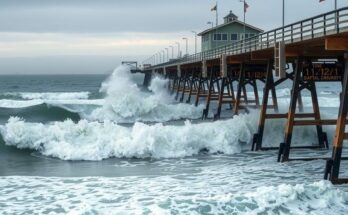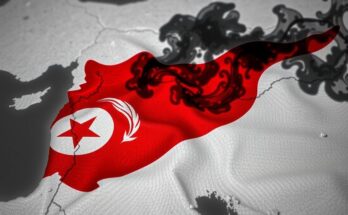The African Union delegation, led by Mauritanian President Mohamed Ould Ghazouani, completed a short visit to Tripoli, Libya, but did not include the eastern region after authorities there refused to engage. This refusal followed the Prime Minister of the rival government, Osama Hammad’s, controversial request to access Libyan assets in Mauritania. The situation underscores ongoing political divisions in Libya.
The delegation from the African Union, led by Mauritanian President and Chairman Mohamed Ould Ghazouani, has departed Libya following a brief visit to Tripoli that was notably conspicuous for its exclusion of the eastern region of the country. This move comes after the eastern authorities declined to welcome the delegation, an action stemming from a prior incident involving a request made by Osama Hammad, the Prime Minister of the rival government. Mr. Hammad had sought access to Libyan financial assets located in Mauritania, including those held by the Chinguitty Bank, during a visit he made to Mauritania that was marked as “controversial.” Political analyst Salah Al-Bakoush elaborated on the situation, indicating that in exchange for allowing access to these assets, Hammad had proposed that Mauritania leverage its connections with the Wagner forces, which have occasionally entered Mauritanian territory and are alleged to be sheltering Malian rebel leaders. Hammad’s visit took place in late August, and it prompted pro-government media claims regarding its official status, necessitating Mauritania to clarify the nature of the meeting through a formal statement from its embassy in Tripoli. The embassy asserted that, “The meeting of the President of Mauritania with the Libyan guest took place at the request of the latter,'” referring specifically to Prime Minister Osama Hammad.
The political landscape in Libya has been characterized by divisions between the eastern and western regions, leading to the formation of parallel governments and tensions regarding authority and recognition. The Mauritanian President’s visit to Libya represents an attempt by the African Union to mediate and address the ongoing political discord. However, the refusal of eastern authorities to accommodate the delegation highlights the complexities and challenges faced in achieving diplomatic engagement amidst the fractured political environment. Furthermore, the mention of the Wagner Group, a paramilitary organization with ties to controversial operations in several African countries, adds an additional layer of geopolitical maneuvering and intrigue to the situation.
In conclusion, the African Union delegation’s abbreviated visit to Libya underscores the persistent division within the country, specifically between the eastern and western authorities. The refusal of the eastern authorities to engage with President Ghazouani’s delegation is indicative of the broader tensions that continue to complicate diplomatic efforts. Moreover, the situation surrounding Osama Hammad’s controversial request for access to Libyan assets reveals deeper intricacies at play, including international influences and internal power struggles. Moving forward, this scenario will require careful navigation by regional stakeholders to foster dialogue and stability in Libya.
Original Source: libyaobserver.ly




